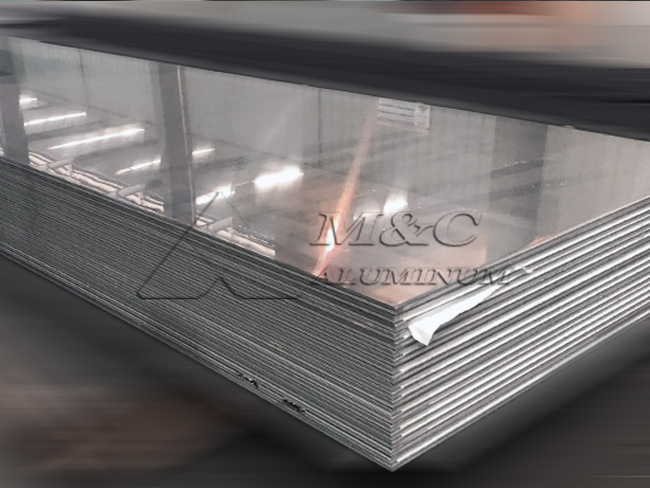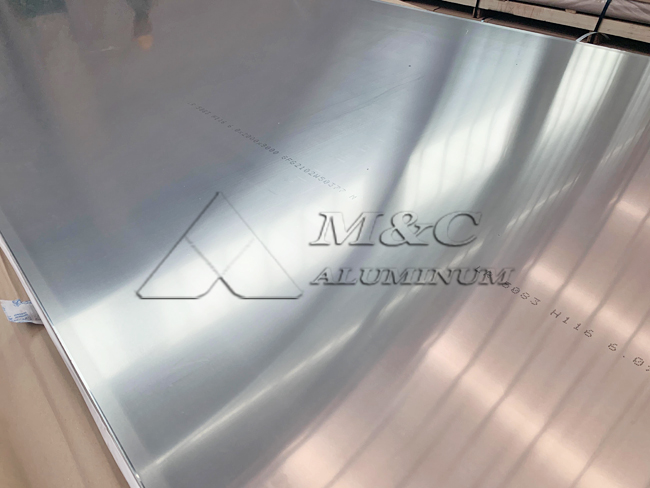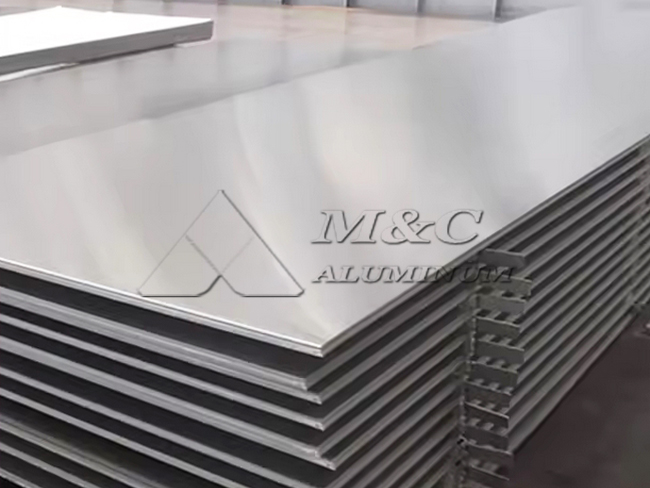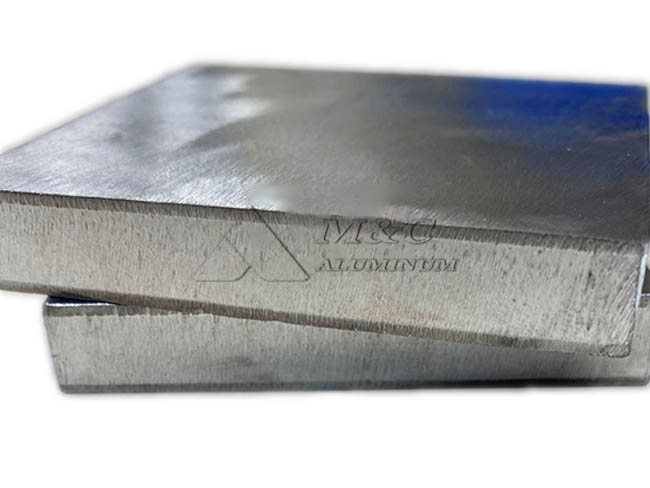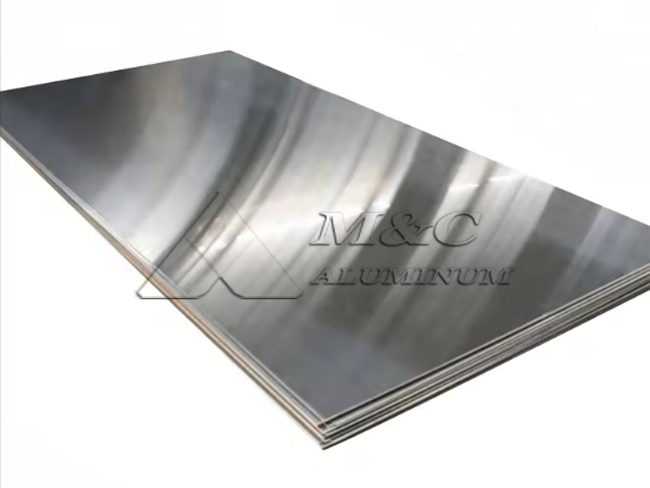Understanding Marine-Grade Aluminum Alloys
Marine-grade aluminum alloys are not just any aluminum alloys; they are specifically engineered to withstand the harsh conditions of marine environments. These alloys typically feature excellent corrosion resistance, high strength, and lightweight properties.
Unlike ordinary aluminum alloys, marine-grade aluminum must meet stricter process and performance standards to endure the severe marine environment—high humidity, high salinity, and continuous seawater exposure.
Key Performance Characteristics of Marine Aluminum Alloys
1. Excellent Corrosion Resistance
The most notable feature of marine aluminum alloys is their superior corrosion resistance. Aluminum naturally forms a dense and stable oxide layer (Al₂O₃) on its surface, which effectively protects it from further corrosion in saltwater environments.
2. High Specific Strength and Modulus
Marine aluminum alloys exhibit high specific strength (strength-to-weight ratio) and specific modulus (stiffness-to-weight ratio), reducing hull weight and improving vessel speed and fuel efficiency. Through alloying and heat treatment, marine aluminum can achieve strengths comparable to, or even exceeding, some steels, ensuring structural safety.
3. Excellent Weldability
Shipbuilding commonly uses automatic TIG welding. Good weldability means lower susceptibility to cracking during welding, ensuring strong, durable joints.
4. Good Formability
Marine aluminum alloys must be easy to form without cracking, while retaining strength and corrosion resistance. They should perform well under both cold and hot forming processes, accommodating diverse shipbuilding fabrication methods.

Recommended Marine Aluminum Alloy Grades
Marine aluminum alloys are primarily from the 5xxx and 6xxx series, with notable grades including:
1. 5083 Aluminum Alloy
5083 is one of the most representative marine alloys. Among non-heat-treatable alloys, it offers the highest tensile strength, excellent weldability, and outstanding seawater corrosion resistance, making it a top choice for shipbuilding.
2. 5052 Aluminum Alloy
A 5-series alloy known for good tensile and fatigue strength and exceptional corrosion resistance, particularly against saltwater spray in marine environments.
3. 5086 Aluminum Alloy
Slightly lower strength than 5083 (tensile ~290 MPa) but excellent weldability and corrosion resistance, ideal for hulls, ladders, and superstructures. Its high strength enhances durability and longevity in harsh marine conditions.
4. 5456 Aluminum Alloy
High-strength alloy (tensile ~340 MPa) with excellent corrosion resistance, suitable for applications requiring maximum strength.
5. 6061 Aluminum Alloy
A 6-series alloy primarily alloyed with Mg and Si, heat-treatable, strong, corrosion-resistant, and weldable. Commonly used in yacht and speedboat keels, frames, and high-strength structural components.
6. 6063 Aluminum Alloy
Moderate strength with excellent corrosion resistance and surface finish, making it ideal for structural and decorative applications in marine environments.
Marine Aluminum Alloy Shapes
Marine aluminum alloys can be fabricated into various forms based on manufacturing needs:
1. Plates/Sheets
Used for hulls, decks, and bulkheads. Produced via hot or cold rolling depending on mechanical property requirements.
2. Profiles
Aluminum rods, tubes, angles, channels, flat bars, T-profiles, I-profiles, FSW panels.
Extruded profiles are widely used for ship frames, support structures, and piping systems. T-shaped extrusions reinforce decks, hulls, and bulkheads.
3. Extrusions
Large, wide, thin-wall extrusions reduce weld counts, enabling lightweight, optimized hull structures. Advanced extrusion equipment produces complex, precision-shaped marine aluminum components.
Recommended Welding Techniques
TIG (Tungsten Inert Gas) Welding: Suitable for thin sections, providing precise control and high-quality welds.
MIG (Metal Inert Gas) Welding: Ideal for thicker parts, offering faster welding speed and deep penetration.
FSW (Friction Stir Welding): A solid-state welding method that produces high-strength joints without melting the base material, especially suitable for vibration-resistant marine aluminum.
Welding Wire Selection:
Use wires compatible with the base alloy to ensure welded joints match the base material in strength and corrosion resistance. For example, 5356 or 5183 wires are commonly used for 5083 aluminum plates.
Surface Treatment Techniques
To enhance corrosion resistance and aesthetics in marine environments, surface treatments are essential:
Anodizing: Forms a dense oxide layer for corrosion resistance and hardness; can be dyed for decorative purposes.
Sandblasting/Shot Peening: Improves surface roughness and coating adhesion; commonly used before welding or painting.
Coatings (PE, PVDF, Epoxy): Provide additional protection and aesthetic appeal, suitable for yacht exteriors or ship interiors.
Electrophoretic Coating: Ideal for small aluminum components, offering uniform coating, wear resistance, and corrosion protection.
Anti-Fouling Coatings: Reduce marine biofouling, improving hull efficiency and performance.
Applications of Marine Aluminum Alloys
Marine aluminum alloys are widely used in:
Hulls and bottom plates
Decks and bulkheads
Ship frames, keels, and ribs
Superstructures (wheelhouses, living quarters)
Marine piping, fuel tanks, and storage tanks
Lightweight yacht and speedboat hulls
Offshore engineering structures such as pontoons and platform components
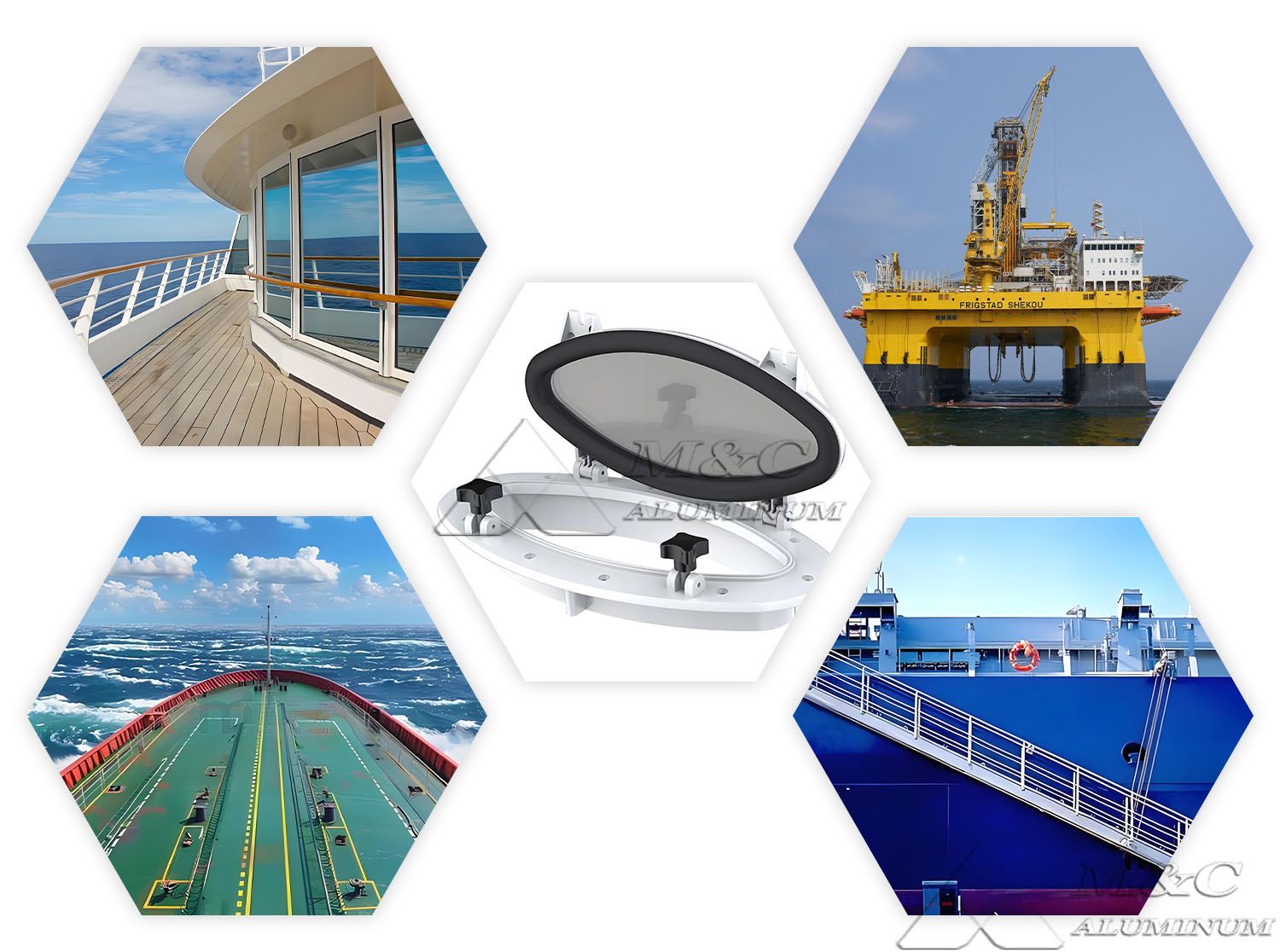
How to Choose the Right Marine Aluminum Alloy
1. Identify the intended use and vessel type: For large cargo ships, oil tankers, or naval vessels, where strength and corrosion resistance are extremely high, 5083 aluminum alloy is the preferred choice. For leisure yachts, speedboats, or small fishing boats, where lightweighting and formability are more important, 5052 and 6061 aluminum alloys may be more suitable.
2. Strength: If the vessel must withstand significant structural loads, high-strength grades such as 5083 are preferred. For frames and non-critical load-bearing structures, moderate-strength grades can be selected.
3. Weldability: Different aluminum alloy grades have different weldability characteristics. If the vessel design requires extensive welding, choose the 5xxx series, particularly 5083, with its superior weldability, to ensure weld quality and overall structural integrity.
4. Cost: Due to its superior performance, 5083 is generally more expensive than 5052. Choosing the most cost-effective material while meeting design requirements can effectively control project costs.
5. Certification and Standards
Shipbuilding-grade aluminum must be certified by classification societies such as CCS, DNV, ABS, and LR to ensure compliance with international shipbuilding standards.

Original Source: https://www.marinealum.com/a/the-most-suitable-marine-grade-aluminum-alloys-for-your-vessel.html
Tag: marine-grade aluminum alloy marine aluminum 5-series marine aluminum 6-series marine aluminum extruded aluminum marine aluminum profile marine aluminum plate 5083 marine aluminum 5052 marine aluminum 5086 marine aluminum 5456 marine aluminum 60

